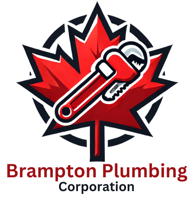Plumbing Challenges in Mechanic Shops
How to Prevent Leaks and Maintain Drainage Systems
COMMERCIAL SERVICES
11/15/20243 min read


Mechanic shops are high-traffic, high-demand environments where plumbing systems must be robust, reliable, and capable of handling the challenges posed by oil, grease, chemicals, and heavy water usage. Efficient plumbing systems are crucial for maintaining cleanliness, preventing costly repairs, and ensuring that your shop operates smoothly. Let’s take a closer look at the plumbing challenges in mechanic shops and how to address them effectively.
Key Plumbing Challenges in Mechanic Shops
Dealing with Oil and Grease in Drains Mechanic shops use oils, lubricants, and other chemicals regularly, which can easily end up in the drains. These substances can clog pipes, damage plumbing systems, and create unsanitary conditions.
Challenge: Oil and grease can solidify in the pipes, leading to blockages that reduce water flow or cause backups.
Solution: Install grease interceptors or traps to catch grease and oil before they enter the drainage system. Regularly clean and maintain these interceptors to ensure they remain effective.
Maintaining Effective Drainage Systems Mechanic shops generate large amounts of wastewater from washing vehicles, cleaning parts, and other activities. An efficient drainage system is crucial for managing the high volume of water and preventing flooding or standing water in the shop.
Challenge: Drains can become overwhelmed by large volumes of water or debris from car repairs and washing.
Solution: Ensure that drains are properly sized to handle the water load and are equipped with debris screens to prevent large particles from clogging pipes. Floor drains should be regularly cleaned and inspected for blockages.
Handling Chemicals and Hazardous Waste Many chemicals used in mechanic shops can be corrosive and harmful to plumbing systems. Proper disposal methods and plumbing systems must be in place to handle these substances safely and effectively.
Challenge: Harsh chemicals can corrode pipes over time, leading to leaks and plumbing failures.
Solution: Use corrosion-resistant piping materials like PVC or copper for areas exposed to chemicals. Ensure that your plumbing system includes appropriate waste disposal systems for hazardous materials, in compliance with local regulations.
Preventing Leaks from High-Pressure Equipment Mechanic shops often use high-pressure equipment, such as power washers, which can put strain on plumbing pipes and connections. Over time, this pressure can cause leaks and weak points in the plumbing system.
Challenge: The constant use of high-pressure systems can result in wear and tear on plumbing, leading to leaks and water damage.
Solution: Regularly inspect all connections and pipes for signs of wear. Replace worn-out hoses and seals and install pressure regulators to ensure water pressure is kept at safe levels for your plumbing.
Best Practices for Plumbing Maintenance in Mechanic Shops
Regular Inspections and Maintenance Routine inspections are crucial for identifying potential issues before they become significant problems. Regular plumbing maintenance will keep everything running smoothly and prevent unexpected plumbing failures.
Tip: Schedule regular plumbing inspections to check for leaks, clogs, or wear and tear on pipes and fittings. Keeping drains clean and free from debris is essential to avoid blockages.
Proper Disposal of Waste Ensure that waste materials, including oils, chemicals, and grease, are disposed of properly to prevent them from entering the drainage system. Never pour these substances down the drain, as this can cause serious plumbing issues.
Tip: Use designated containers for hazardous waste and ensure that your plumbing system is designed to handle non-hazardous waste water.
Grease Trap Maintenance Grease traps are essential for keeping oil, grease, and other solid waste from entering the plumbing system. Regular maintenance of these traps ensures that they are functioning effectively and preventing clogs.
Tip: Clean grease traps on a regular schedule to keep them from overflowing or becoming clogged.
Use High-Quality Plumbing Materials Mechanic shops face a variety of stresses on their plumbing systems, from chemicals to high-pressure water. To avoid frequent repairs and breakdowns, use high-quality, durable plumbing materials that can withstand these conditions.
Tip: Choose corrosion-resistant pipes, fittings, and seals that are designed for industrial use. This will prolong the life of your plumbing system and reduce the risk of leaks and failures.
Why Choose Brampton Plumbing Corporation for Your Mechanic Shop’s Plumbing Needs?
At Brampton Plumbing Corporation, we understand the unique plumbing needs of mechanic shops and are experienced in providing solutions that help you maintain a clean, efficient, and safe environment. From grease trap installation to chemical waste management and high-pressure system maintenance, our expert plumbers are ready to tackle any plumbing challenge your shop may face.
If you need reliable plumbing services for your mechanic shop, contact Brampton Plumbing Corporation today!
Brampton Plumbing Corporation
Building Trust, One Pipe at a Time.
Contact
bramptonplumbingcorp@gmail.com
(647) 819-7072
COPYRIGHT © 2020-2024 Brampton Plumbing Corporation






